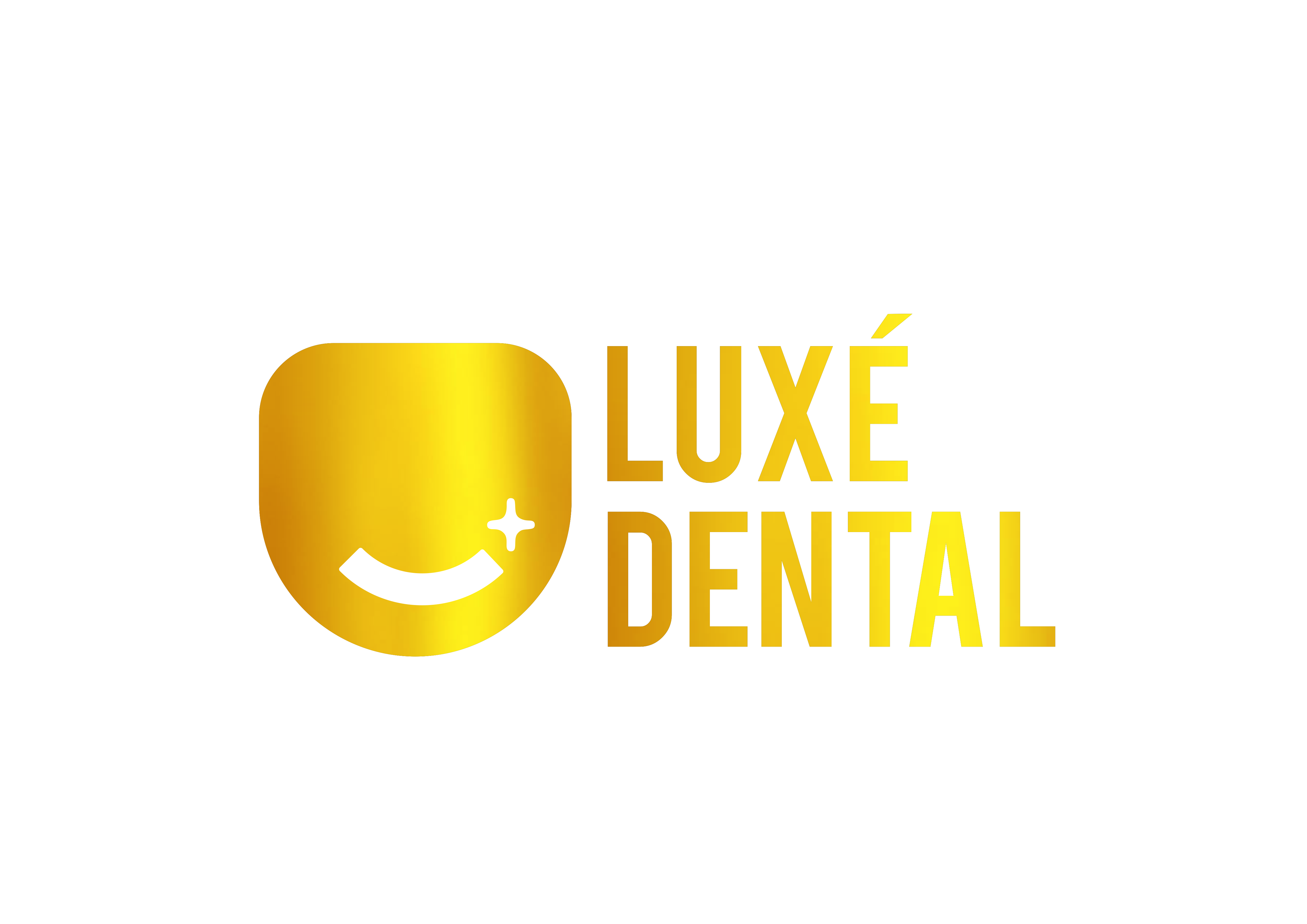Are you considering a dental implant in Nigeria? You’re not alone! Dental implants are becoming an increasingly popular solution for those looking to replace missing teeth and restore their smiles. But what exactly makes dental implants a preferred choice, and what is the cost of dental implants in Nigeria? Let’s dive into all the details you need to know.
Dental implants are a game-changer in the field of restorative dentistry, offering a long-term solution that closely mimics the look and function of natural teeth. However, many people are curious about the costs involved, especially in Nigeria where the healthcare system presents its own unique challenges and opportunities. This comprehensive guide will cover everything from the basics of dental implants to their costs, benefits, and potential risks, helping you make an informed decision.
Why Should I Consider a Dental Implant?
Dental implants offer numerous benefits over other dental solutions like dentures and bridges. Here are some compelling reasons to consider them:
- Longevity: Dental implants are designed to last many years, often a lifetime with proper care. Unlike dentures, which may need to be replaced every 5 to 10 years, implants are a more permanent solution.
- Functionality: They function like natural teeth, allowing you to eat and speak with confidence. Unlike dentures that can slip and cause difficulties in chewing certain foods, implants stay securely in place.
- Aesthetics: Implants look and feel like your own teeth, providing a natural appearance. This can be a significant boost to your self-esteem and confidence, knowing that your smile looks natural and attractive.
- Bone Health: They help preserve jawbone density, preventing bone loss that can occur with missing teeth. When a tooth is lost, the jawbone in the empty space deteriorates due to lack of stimulation. Implants provide the necessary stimulation for bone growth.
- Convenience: Unlike dentures, implants don’t require removal for cleaning and don’t slip or click. You can brush and floss them just like your natural teeth, making them a hassle-free solution.
- Improved Speech: Dentures can sometimes cause slurred speech due to slipping. Dental implants allow you to speak without the worry that teeth might move.
- Better Comfort: Implants are integrated into your jawbone, making them a part of your mouth. This eliminates the discomfort associated with removable dentures.
- No Need to Alter Adjacent Teeth: Unlike bridges, which require the alteration of adjacent teeth for support, implants do not affect your other healthy teeth.
These benefits make dental implants an excellent choice for those looking to restore their dental health and smile.
How Does Dental Implant Work?
A dental implant is essentially a titanium post that acts as a tooth root. Here’s a breakdown of its components:
- Implant Post: This is the titanium screw inserted into the jawbone. Titanium is used because it is biocompatible, meaning it is accepted by the body and can bond with the bone.
- Abutment: A connector that holds and supports the tooth. It is placed on top of the implant post once it has fused with the jawbone.
- Crown: The visible part of the tooth, usually made of porcelain or ceramic, that looks like a natural tooth. The crown is custom-made to match the color, size, and shape of your natural teeth.
How Implants Work: The process starts with the implant post being surgically placed into the jawbone. Over a period of several months, the post and the bone fuse together in a process called osseointegration. This forms a strong and stable base for the abutment and crown. Once osseointegration is complete, the abutment is attached to the implant post, and the custom-made crown is fixed on top of the abutment.
This step-by-step integration ensures that the implant feels and functions like a natural tooth. The success of this procedure largely depends on the patient’s bone health and adherence to post-surgery care instructions.
How Much is Dental Implant in Nigeria?
The cost of dental implants in Nigeria starts from ₦1,000,000 and varies based on several factors:
- Single Tooth Implant: ₦1,000,000 and above
- Multiple Teeth Implants: ₦1,000,000 and above
- Full Mouth Reconstruction: ₦2,000,000 to ₦7,000,000
Disclaimer: The prices stated above are only an estimate based on the overall competition. Prices may change due to exchange rates and other economic factors. To find out the exact price at the particular time of carrying out your search, it’s best to make an inquiry or book an appointment at your preferred dental clinic.
Factors Influencing the Cost:
- Clinic Location:
- Dental clinics in urban areas like Lagos, Abuja, or Port Harcourt tend to charge more due to higher operational costs and demand.
- Dentist’s Expertise:
- Experienced and highly qualified dental surgeons often charge more for their services. It’s crucial to choose a dentist with a proven track record in implant procedures.
- Materials Used:
- The quality of the implant materials (titanium posts, abutments, crowns) can significantly impact the cost. High-quality, durable materials are more expensive but offer better long-term outcomes. At Luxe Dental, we use the world’s best implant systems, including Bicon dental implants and Neodent.
- Additional Procedures:
- Procedures such as bone grafting, sinus lifts, or extractions can add to the overall cost. These are necessary if there is insufficient bone density to support the implant.
- Type of Implant:
- Different types of implants (e.g., traditional implants, mini implants) have different cost structures.
Comparing Costs: It’s helpful to compare the costs of dental implants in Nigeria with those in other countries. While implants may be more expensive in Western countries like the United States or the UK, they are relatively affordable in Nigeria. However, it’s important to ensure that the lower cost does not compromise the quality of care and materials used.
What’s the Dental Implants Process?
The dental implant process involves several steps, each crucial to the success of the treatment. Here’s a detailed look at the entire process:
- Initial Consultation: During this visit, the dentist evaluates your oral health and discusses your treatment options. X-rays and possibly CT scans are taken to assess the condition of your jawbone and determine the best implant placement.
- Preparation: If you have insufficient bone density, preparatory procedures like bone grafting may be necessary. This process involves adding bone or bone-like materials to your jaw to ensure a stable base for the implant.
- Implant Placement: The next step is the surgical placement of the implant post into the jawbone. This is typically done under local anesthesia, though sedation options are available for those who are anxious about the procedure. The dentist makes an incision in the gum to expose the bone and drills a hole to place the implant.
- Healing Period: After the implant is placed, a healing period of 3 to 6 months is required for osseointegration, where the implant fuses with the jawbone. During this time, you’ll need to follow specific aftercare instructions to promote healing and avoid complications.
- Abutment Placement: Once the implant has fused with the bone, the abutment is attached. This may involve a minor surgical procedure where the gum tissue is opened to expose the implant and secure the abutment in place.
- Crown Placement: The final step is placing the custom-made crown on the abutment. Impressions of your teeth are taken to create a crown that matches your natural teeth in color, shape, and size. The crown is then attached to the abutment, completing the restoration.
Aftercare and Follow-Up: Post-surgery, your dentist will provide instructions on caring for your implants. Regular check-ups are essential to monitor the implant and ensure it remains secure and healthy.
How Long Do Dental Implants Take to Heal?
Healing time for dental implants varies but generally takes about 3 to 6 months. Several factors can influence this duration:
- Bone Density: Patients with higher bone density typically experience faster healing as the implant can integrate more readily with the existing bone.
- Health Status: Your overall health plays a significant role. Conditions like diabetes or autoimmune diseases can slow down the healing process. It’s crucial to manage these conditions effectively.
- Smoking: Smoking can impair healing by restricting blood flow to the gums, so it’s advisable to quit smoking before undergoing the procedure.
- Aftercare: Proper oral hygiene and following your dentist’s aftercare instructions are crucial for a smooth recovery. This includes regular brushing, flossing, and possibly using an antiseptic mouthwash to prevent infection.
Healing Stages:
- Immediate Post-Surgery: Initial healing occurs within the first two weeks, during which you might experience swelling, bruising, and minor discomfort.
- Osseointegration Phase: Over the next several months, the implant fuses with the jawbone. You should avoid putting excessive pressure on the implant during this time.
- Final Healing: After osseointegration, the gums and bone around the implant continue to stabilize, preparing for the abutment and crown placement.
Am I a Good Candidate for Dental Implants?
Not everyone is an ideal candidate for dental implants. Here are some criteria to consider:
- Good Oral Health: Healthy gums and sufficient bone density are essential. Gum disease or significant bone loss may require treatment before implants can be placed.
- Overall Health: Your general health should be good. Chronic conditions like diabetes or heart disease need to be well-managed, as they can affect healing and implant success.
- Non-smokers: Smoking can impair healing and affect implant success. If you smoke, your dentist may recommend quitting before undergoing the procedure.
- Commitment: You must be willing to maintain good oral hygiene and attend follow-up visits. Proper care is crucial for the longevity of your implants.
Consultation and Evaluation Process: Your dentist will conduct a thorough evaluation to determine if implants are right for you. This includes a comprehensive oral examination, medical history review, and imaging tests like x-rays or CT scans to assess your bone structure.
Additional Considerations:
- Age: While there is no upper age limit, young patients should wait until their jawbone has fully developed.
- Bone Grafting: If you lack sufficient bone density, a bone graft may be necessary to build up the bone before implant placement.
Will Dental Implants Lift My Face?
Yes, dental implants can help maintain and even improve your facial structure. By preventing bone loss that typically follows tooth loss, implants help:
- Maintain Jawline: Preserve the natural shape of your jaw. Tooth loss can lead to bone resorption, causing the jaw to shrink and change shape.
- Prevent Sagging: Avoid the sunken look associated with missing teeth. When teeth are missing, the bone that supported those teeth begins to deteriorate, leading to a collapsed appearance.
- Enhance Appearance: Provide a fuller, more youthful look to your face. Dental implants support the facial muscles and skin, preventing the sagging and hollow appearance often seen with multiple missing teeth.
- Improve Bite and Chewing: Restoring teeth with implants can also improve your bite and chewing efficiency, contributing to better nutrition and overall health.
By maintaining the structure and density of your jawbone, dental implants play a crucial role in supporting the facial features, giving you a more youthful and natural appearance.
Why Consider Dental Implants?
To summarize, here are the primary reasons to consider dental implants:
- Durability: They can last a lifetime with proper care. Implants are made from durable materials like titanium and porcelain, designed to withstand the forces of chewing and biting.
- Functionality: Work like natural teeth. Implants provide a stable and strong foundation for chewing, allowing you to enjoy your favorite foods without worry.
- Appearance: Look natural and improve your smile. The crowns used in implants are custom-made to blend seamlessly with your natural teeth, enhancing your overall appearance.
- Bone Health: Prevent bone loss and maintain facial structure. By stimulating the jawbone, implants help maintain its density and prevent the deterioration associated with missing teeth.
- Convenience: No need for adhesives or special cleaning routines. Implants are cared for just like your natural teeth, with regular brushing and flossing.
- Improved Quality of Life: Dental implants can significantly improve your quality of life by restoring your ability to eat, speak, and smile confidently. They eliminate the discomfort and inconvenience of removable dentures and provide a long-term solution to missing teeth.
How Long Do Dental Implants Last?
With proper care, dental implants can last many years, often a lifetime. Factors influencing their longevity include:
- Oral Hygiene: Regular brushing, flossing, and dental check-ups are essential. Good oral hygiene helps prevent infections and gum disease that can jeopardize the stability of your implants.
- Lifestyle: Avoiding smoking and excessive alcohol consumption. Both smoking and heavy drinking can negatively affect the health of your gums and bones, potentially leading to implant failure.
- Diet: A balanced diet supporting oral health. Eating a diet rich in vitamins and minerals promotes healthy gums and bones.
- Regular Check-Ups: Early detection of potential issues. Regular dental visits allow your dentist to monitor the health of your implants and address any problems promptly.
Factors Affecting Implant Longevity:
- Bone Quality: The quality and quantity of your jawbone play a significant role in the success and longevity of your implants.
- Health Conditions: Certain conditions, such as diabetes, osteoporosis, and autoimmune diseases, can affect healing and implant integration.
- Bruxism: Grinding or clenching your teeth can put excessive pressure on implants, potentially leading to failure.
By following your dentist’s care instructions and maintaining good oral hygiene, you can ensure the long-term success of your dental implants.
What Are the Signs of Dental Implant Failure?
While dental implants have a high success rate, they can fail. Signs of failure include:
- Pain or Discomfort: Persistent pain at the implant site. While some discomfort is normal after surgery, ongoing or severe pain may indicate a problem.
- Mobility: The implant feels loose. A stable implant should not move; any mobility is a sign that the implant has not integrated properly with the bone.
- Swelling or Infection: Signs of infection around the implant, such as redness, swelling, and pus discharge. Infection is a serious concern that requires immediate attention.
- Bone Loss: Detected through x-rays. Significant bone loss around the implant can compromise its stability and function.
- Gum Recession: If the gums around the implant start to recede, the metal post may become exposed, increasing the risk of infection and implant failure.
Risk Factors for Implant Failure:
- Poor Oral Hygiene: Neglecting oral hygiene can lead to peri-implantitis, an inflammatory condition affecting the tissues around the implant.
- Smoking: Increases the risk of infection and impairs healing.
- Medical Conditions: Conditions like uncontrolled diabetes can affect bone healing and integration.
- Excessive Force: Grinding or clenching your teeth can put undue pressure on the implant.
Prevention and Management: Regular dental check-ups and maintaining good oral hygiene can help detect and prevent these issues early. If you notice any signs of implant failure, contact your dentist immediately to address the problem.
Conclusion
Dental implants are a valuable investment in your oral health and overall well-being. They offer numerous benefits, from improved functionality and aesthetics to preserving bone health. If you’re considering dental implants in Nigeria, consult with a qualified dentist to determine the best approach for your needs and ensure a successful outcome.
At Luxe Dental Clinic, we specialize in providing high-quality dental implant services tailored to your unique needs. Book an appointment with us today to start your journey towards a healthier, more confident smile.
With the right care and maintenance, dental implants can provide a lifetime of benefits, restoring your smile and enhancing your quality of life. Don’t hesitate to explore this effective solution for missing teeth and take the first step towards a healthier, more confident you.
51b Oba Ladejobi St, Ikeja GRA, Lagos 101233, Lagos
+2349044374007








